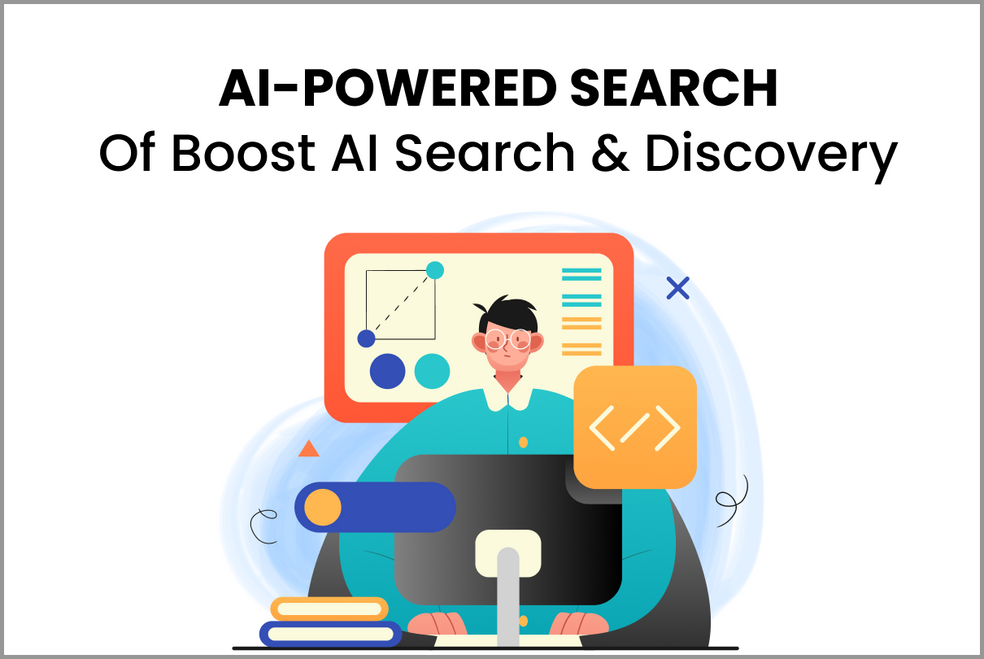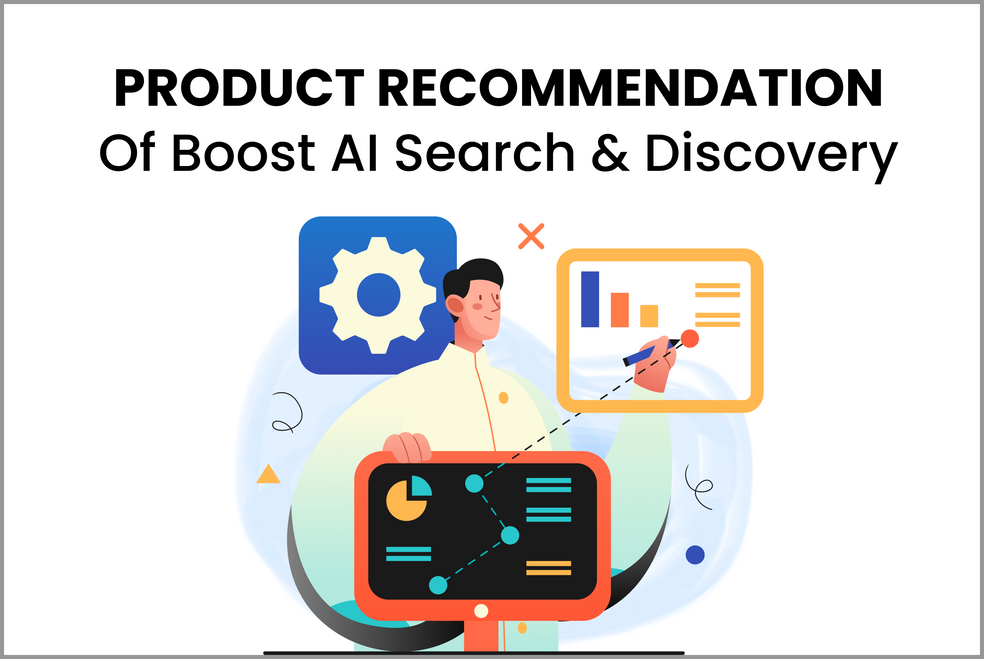What is Intelligence Search?
Intelligent search capabilities are provided by a search engine that can “understand” user intent based on the information entered into the search field. It uses various technologies, including natural language processing (NLP) and machine learning, to better understand what each user wants. It is also referred to as cognitive search or AI search. It is thus possible to deliver the appropriate search query results.
How does Intelligence Search work?
Natural language processing and machine learning are two of the methods used in intelligent search. For instance, it can identify relationships between semantic phrases that a conventional search engine (one that only examines keywords) would not be able to identify. It can also perform “thinking” functions like comprehending a document’s structure.
Traditional Search Vs. Intelligence Search
Traditional Search
A few years ago, you might have conducted a text search on a website using a conventional search engine; perhaps you typed “vegan ice cream” into the search box. The top pages for the search would have been displayed to you; essentially, a list of links to products on the websites of different supermarket chains that carried vegan brands.
This search strategy could have been effective if you were looking for basic information on where you could buy a gallon of vegan ice cream. However, it’s possible that you were seeking a specific piece of information about vegan ice cream.
Modern intelligent search methods are more helpful in this situation.
Intelligence Search
Google’s search results will be much more spectacular if you write “vegan ice cream” into the search bar. While web crawlers and page rankings are still used by AI-powered intelligent engines, the software also examines user intent.
An intelligent search engine classifies results into intent-based categories, such as shopping options, recipes, and commonly asked questions, when you conduct a search on a broad-based word like this. After that, you may rapidly narrow down the results to the category you were thinking of.
The term “vegan ice cream” has many meanings. You might be more interested in learning what makes true vegan ice cream or what ingredients are in it than knowing where to buy it.
You’re less likely to need to retype a search query since the original one doesn’t work with intelligent AI-powered search engine technology because it takes all of these factors into account. Whether you have a taste for vegan ice cream or simply want to learn how it varies from vegetarian ice cream (is there such a thing? ), the search results are often more precise and organically align with your personal interests. Additionally, you will see “People also ask” queries like “Is vegan ice cream healthier than regular ice cream” just in case you haven’t quite specified which precise vegan ice cream statistics you’re looking for.
What makes Intelligence Search important?
- Makes judgments using insights found in unstructured text data: Your unstructured text data contains insights. In order to quickly and accurately expose real-time insights, intelligent search applications use natural language processing to decipher meaning and find correlations across data sources, including social media (tweets, LinkedIn), customer feedback, e-commerce reports, and maintenance records.
- Provides your staff with quick access to pertinent information: Create an enterprise search platform, knowledge management, content management system, or question-answering system using intelligent search to offer a straightforward user experience for the entire team.
- Scalable customer service: Always give the proper answer to your clients and improve their experience. Beyond FAQs, customers demand more. They desire complete self-serve on your websites and mobile applications now more than ever; virtual agents and intelligent search enable your users to take control of their own experience. Customers who can sustain themselves save money and are happier with the service they receive.
Best practices to implement Intelligence Search
So how can you use AI to drive traffic to your online store? There are a few methods you can employ AI for your e-commerce store, so don’t worry. Let’s start…
1. Customer-Centric Search
Industry analysts claim that inappropriate search results for a product search are one of the top reasons why buyers leave an online business. Natural language processing can be used to filter down, contextualize, and eventually improve the search results for the users in order to address this issue.
By offering the option of searching with vision, many online retailers will soon offer the next level of search functionality. In order to create more intelligent software that can “see the world as you do,” special attention must be paid to this. With the use of cutting-edge video and voice recognition, you will be able to provide a customer-focused search experience.
2. Retargeting Potential Customers
Are you aware that the sales staff doesn’t follow up on about one-third of the leads generated by marketing? It indicates that a sizable portion of the pre-qualified customers who are interested in your goods or services are leaving you. Additionally, a lot of organizations struggle to handle their massive amounts of client data. They can leverage the insight included in this data to increase sales and improve the customer experience.
But how might AI be used to improve the shopping experience for customers? Consider a visitor who spends a lot of time looking at the latest iPad’s features, pricing, and other characteristics. If this happens, the visitor’s information can be retained and used to better serve him the next time he comes in. As a result of the use of AI, sales strategy is evolving to better meet the needs of the consumer.
3. Identifying outstanding prospects
The latest artificial intelligence technology can be used to solve time-consuming commercial difficulties, like generating leads.
Artificial intelligence (AI) solutions for marketing, sales, or CRMs are offered by Mintigo, a predictive marketing company. By gathering information about which companies have websites using photos from Getty’s rivals, Mintigo AI has helped Getty Images create a considerable number of new leads. The sales team can now take advantage of their ability to recognize the new critical elements in order to generate more business.
4. Improving Sales Process efficiency
Clients used to be marketed to using techniques like cold calling and selectively choosing leads from the reliable Yellow Pages. However, the era of outdated sales strategies is now over. Through television or social media commercials, clients now connect with the items, which presents new potential for the sales team.
NLP learning and voice recognition technologies, like those used by Siri or Alexa, are used by many AI systems. This enables your app to respond to client inquiries, address their problems, and develop fresh, exciting opportunities for your sales team.
5. Increased Personalization
E-commerce has long embraced personalization. Every online retailer makes an effort to provide its consumers the highest level of personalisation. If you’ve ever used Amazon, you’ll know exactly what we’re talking about. When you search for a watch and look through watches from FOSSIL, Daniel Wellington, etc., you can afterwards see recommendations for many different watches. Customer customization refers to this practice.
To fulfill the increasing expectations of customers in the quickly expanding e-commerce industry, the level of personalisation has expanded with the development of AI and ML technologies.
6. Adding a personal touch with Chatbots
Chatbots have become a big part of e-commerce procedures, whether you want to call it a revolution or an invasion. All e-commerce businesses, from large corporations like Google or Amazon to medium- and small-sized ones, are actively utilizing chatbots. The chatbots may handle any task, including team communication and client assistance. Chatbots can serve as a discussion tool or as your marketing expert. Costs associated with customer service will also be decreased. With a quicker and more precise response, they offer a highly tailored experience. Additionally, chatbots can be installed on a variety of platforms, including WhatsApp, Facebook Messenger, and others.
















